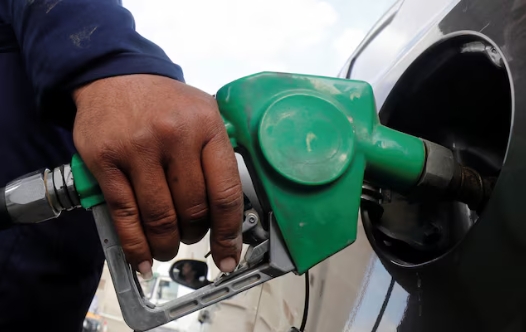Wedoany.com Report-Apr. 11, On Friday, Egypt adjusted fuel prices upward by 11.76% to 14.81%, the first such change in 2025, according to state media. The move aligns with the government’s efforts to reduce fuel subsidies as part of an $8 billion International Monetary Fund (IMF) support package. This follows the IMF’s approval of a $1.2 billion disbursement in late 2024 after reviewing Egypt’s loan program.

A worker fills a car's tank at the CO-OP petrol station in Cairo, Egypt April 2, 2020.
The price adjustments affect various fuel types. Diesel, widely used across the country, increased from 13.50 Egyptian pounds per liter to 15.50 pounds ($0.0390). Gasoline prices rose by up to 14.5%, with 80 octane now at 15.75 pounds, 92 octane at 17.25 pounds, and 95 octane at 19 pounds. Butane cooking gas cylinders also saw a price hike, moving from 150 pounds to 200 pounds per cylinder.
Egypt has been working with the IMF since 2016 to stabilize its economy, which faced challenges following the Arab Spring protests. The IMF has encouraged reductions in fuel, electricity, and food subsidies while strengthening social support programs. In March, the IMF noted Egypt’s commitment to aligning energy subsidies with actual costs by December to address its current account deficit.
Prime Minister Mostafa Madbouly stated in March: “By the end of the year, petroleum subsidies will no longer be a financial burden, though diesel will still receive partial support and not be priced at full cost.” Despite three fuel price increases in 2024, ranging from 11% to 17%, the government spent approximately 10 billion Egyptian pounds ($197.71 million) monthly on fuel subsidies, according to Petroleum Minister Karim Badawi in October.
Egypt’s economy has faced additional pressures in 2024. Reduced Suez Canal revenues, a key source of foreign currency, stemmed from regional disruptions affecting Red Sea shipping routes. Declining local natural gas production has also limited export earnings, increasing Egypt’s reliance on imported natural gas, petroleum, and wheat to support its food subsidy program, which serves over 62 million people.
The ongoing foreign currency shortage, intensified since early 2022, has slowed business activity, delayed commodity payments, and caused port backlogs. To address these challenges, Egypt secured a 46-month IMF loan extension. The Egyptian pound has depreciated significantly, losing over two-thirds of its value against the dollar through multiple devaluations. Despite these adjustments, Egypt’s petrol prices remain among the lowest globally, balancing economic reforms with affordability for citizens.

















